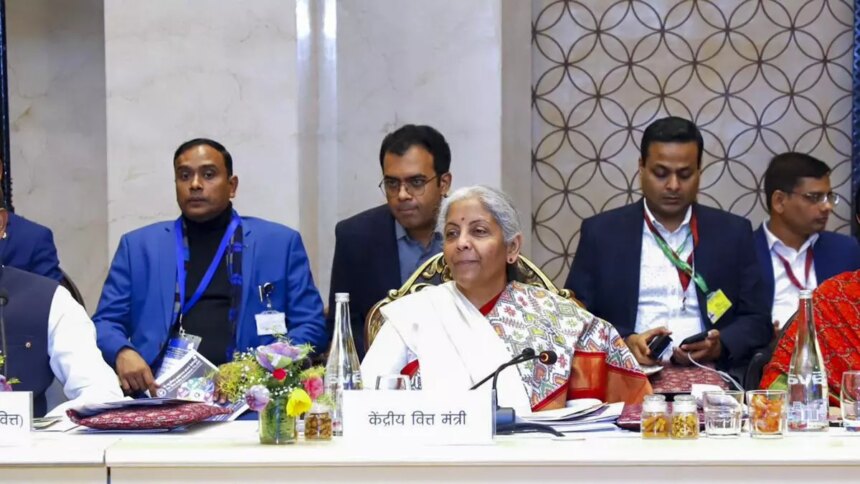In a recent pre-Budget meeting held on Friday, Finance Minister Nirmala Sitharaman engaged with various States, where they advocated for an elevated allocation of interest-free loans with a 50-year repayment period. States facing financial challenges, particularly Kerala, requested special financial packages and greater borrowing flexibility.
The discussions included a proposal to increase borrowing limits to bolster fiscal initiatives, alongside calls for enhanced funding for the Jal Jeevan Mission to improve water supply infrastructure, including storage tanks.
During the meeting, Maharashtra put forth its request for funding for the Ladki Behena scheme and suggested the establishment of a Centrally Sponsored Scheme (CSS) where the central government would contribute 50% of the funding costs.
The Union Budget for the fiscal year 2025-26 is expected to be presented in Parliament on February 1, 2025. Finance Ministers from all States were in attendance at this meeting in Jaisalmer.
Sources reported that the States pushed for a rise in the allocation for these long-term, interest-free loans, along with requests for more flexibility concerning the Special Assistance for Capital Investment (SASCI) scheme.
In the previous Budget for 2024-25, Sitharaman had increased the allocation for interest-free loans dedicated to capital expenditures for the States, raising it to ₹1.5 lakh crore from ₹1.10 lakh crore in the 2023-24 Budget.
Moreover, discussions around infrastructure revealed that States highlighted the necessity of specific road and railway development projects tailored to their individual needs. Additionally, there were appeals to enhance the honorarium for Accredited Social Health Activists (ASHA) workers.
Several States urged the central government to assume a larger share of the costs associated with land acquisition for various projects. Fiscally strained States, including Punjab and Kerala, reiterated their request for special financial assistance, encompassing more loans, grants, and flexible borrowing options.
States also underscored the imperative for increased funding to address disaster relief needs, requesting a larger allocation for the State Disaster Response Fund (SDRF).
Kerala’s Finance Minister, K N Balagopal, emphasized that strict fiscal consolidation achieved through reductions in government spending might not be a beneficial approach. He stated, “We stress that the targets for fiscal consolidation should not hinder sustainable growth. It is essential for state governments to be empowered to meet their expenditure obligations and implement macroeconomic policies that promote robust national economic growth.”










